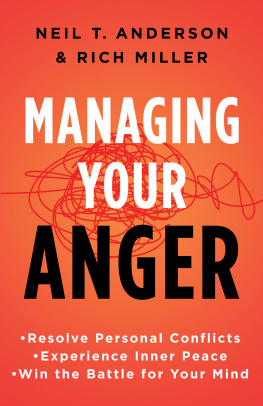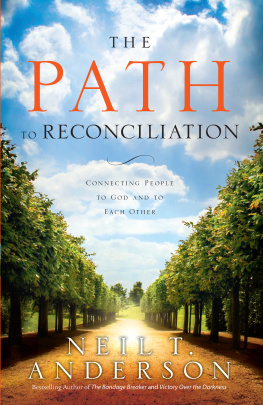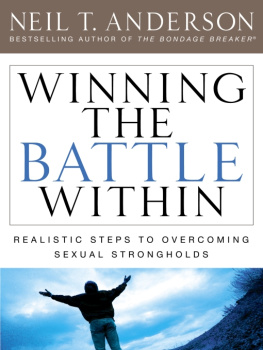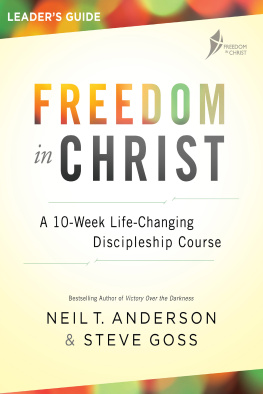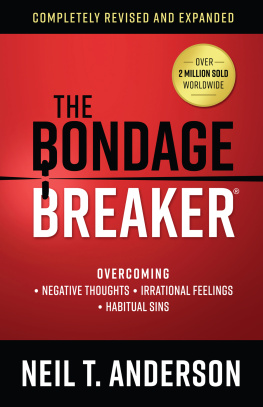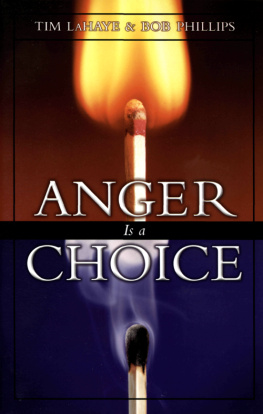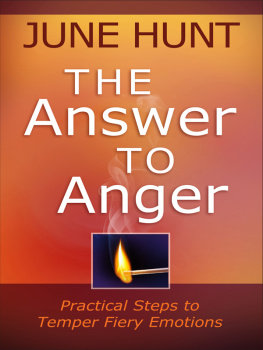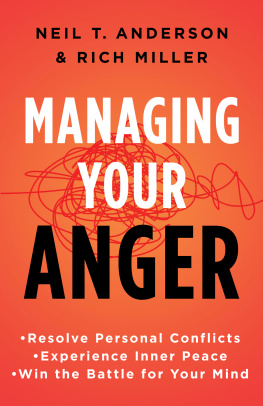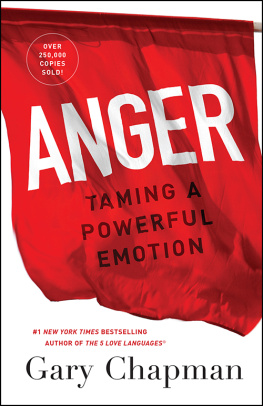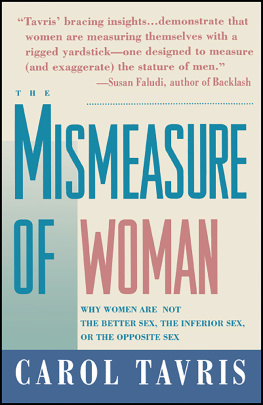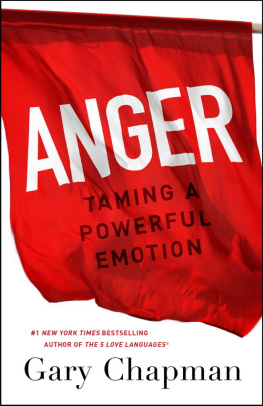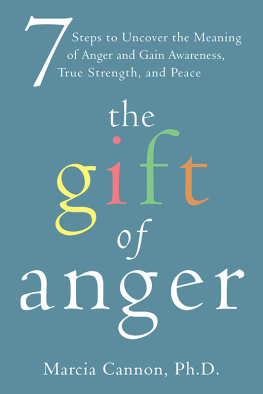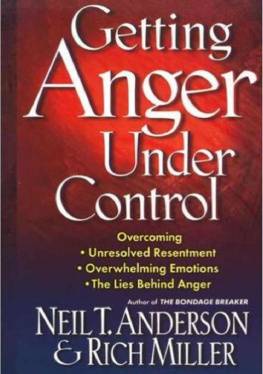

HARVEST HOUSE PUBLISHERS
EUGENE, OREGON
Unless otherwise indicated, all Scripture quotations are taken from the New American Standard Bible, 1960, 1962, 1963, 1968, 1971, 1972, 1973, 1975, 1977, 1995 by The Lockman Foundation. Used by permission. (www.Lockman.org)
Verses marked ESV are taken from The Holy Bible, English Standard Version. ESV Permanent Text Edition (2016). Copyright 2001 by Crossway Bibles, a publishing ministry of Good News Publishers.
Verses marked NIV are taken from the Holy Bible, New International Version, NIV . Copyright 1973, 1978, 1984, 2011 by Biblica, Inc. Used by permission. All rights reserved worldwide.
Verses marked NKJV are taken from the New King James Version. Copyright 1982 by Thomas Nelson, Inc. Used by permission. All rights reserved.
Verses marked KJV are taken from the King James Version of the Bible.
Verses marked MSG are taken from THE MESSAGE. Copyright by Eugene H. Peterson 1993, 1994, 1995, 1996, 2000, 2001, 2002. Used by permission of Tyndale House Publishers, Inc.
Cover by Jason Gabbert Design
Cover photos Shawn Hempel / shutterstock
MANAGING YOUR ANGER
Copyright 2018 Neil T. Anderson/Rich Miller
Published by Harvest House Publishers
Eugene, Oregon 97408
www.harvesthousepublishers.com
ISBN 978-0-7369-5825-7 (pbk.)
ISBN 978-0-7369-7221-5 (eBook)
Library of Congress Cataloging-in-Publication Data
Names: Anderson, Neil T., 1942 author. | Miller, Rich, 1954 author.
Title: Managing your anger : experience restored relationships, complete forgiveness, and peace of mind / Neil T. Anderson, Rich Miller.
Other titles: Getting anger under control
Description: Eugene, Oregon : Harvest House Publishers, 2018. | Revised edition of: Getting anger under control / Neil T. Anderson and Rich Miller. copyright 2002.
Identifiers: LCCN 2017023233 (print) | LCCN 2017032841 (ebook) | ISBN 9780736972215 (ebook) | ISBN 9780736958257 (pbk.)
Subjects: LCSH: AngerReligious aspectsChristianity.
Classification: LCC BV4627.A5 (ebook) | LCC BV4627.A5 A53 2018 (print) | DDC 248.4dc23
LC record available at https://lccn.loc.gov/2017023233
All rights reserved. No part of this electronic publication may be reproduced, stored in a retrieval system, distributed, or transmitted in any form or by any meanselectronic, mechanical, digital, photocopy, recording, or any otherwithout the prior written permission of the publisher. The authorized purchaser has been granted a nontransferable, nonexclusive, and noncommercial right to access and view this electronic publication, and purchaser agrees to do so only in accordance with the terms of use under which it was purchased or transmitted. Participation in or encouragement of piracy of copyrighted materials in violation of authors and publishers rights is strictly prohibited.
CONTENTS
A vast majority of Americans feel their country has reached an ill-mannered watershed. Nine out of ten Americans think incivility is a serious problem, and nearly half think it is extremely serious. Seventy-eight percent say the problem has worsened in the last ten years.
We the people are ticked off. The body politic is burning up. And the anger that courses through our headlines and news feedsabout injustice and inequality, about marginalization and disenfranchisement, about what they are doing to usshows no sign of abatingHalf of all Americans are angrier today than they were a year ago.Hillary Clinton and Donald Trump were nominated to represent their respective political parties. The presidential debates that followed reached an all-time low in civility. Thanks to the Internet, the world had front-row seats to witness the embarrassing charade. Many Americans were fuming with anger at one candidate or the other, and their only outlet was to wait until election day and cast one vote against the candidate they least liked. It is unlikely that a singular act of voting would be enough to put away all anger (see Ephesians 4:31). Protests erupted immediately after Donald Trump was voted to be the president of the United States.
Unjustified anger has scarred the landscape of humanity ever since Adam ate the forbidden fruit. Anger that rips apart homes, businesses, and countries is not new. The media-driven escalation of anger is unprecedented. Our smart phones notify us immediately with every terror attack, school shooting, political scandal, race riot, police shooting, and anonymous tips from every Tom, Sally, and Joe, who are not even authorized to speak of such things. Uncensored airways are fueling the fires of rage, and tech-savvy children can view every rant on their smart phones. One mother wrote to us:
While you are at it, you might want to think about writing a book for angry teenagers. My 16-year-old daughters anger has over the years slowly turned her mind away from Christ and toward the pop culture. Her situation is an ironic one that exists, I believe, in many homes where Christian school, church, and family values have been predominant. For her, the situation posed a dilemma. If she chose Christ, she would never fit in. If she chose pop culture, she jeopardized her relationships at home and with this distant God who doesnt care anyway, because He doesnt give me what I want. So she got stuck in angry defiance. At home, she acts out her anger. At school, shes decided to get rougher and tougher so that she wont be hurt.
Looking back, I see that I was clueless about the roots of anger and the consequences of wrong thinking. On the outside, it seemed like we were on top of the situation. Yet there were critical stages of anger that we didnt have the tools to see or confront. Now we are doing major parental intervention in her life. Hopefully, it isnt too late.
With the world spiraling into chaos, why doesnt God do something? Jonah was asking the same question 2800 years ago. Nineveh, the capital of Assyria, was sliding into a crevasse of immorality and cruel violence. Jonah was angry at the people for not repenting and angry at God for not bringing judgment upon them. He wanted God to destroy Nineveh. Unlike Jonah, God is slow to anger and abundant in lovingkindness, and one who relents concerning calamity (Jonah 4:2). The Lord zeroed in on the critical issue when He asked Jonah a question we need to ask ourselves: Do you have good reason to be angry? (4:4).
Suppose we are in the difficult, terrible ( NIV ), or perilous ( KJV ) end times that Paul said would come (2 Timothy 3:1). A time when people will be lovers of themselves, lovers of money, boastful, proud, abusive, disobedient to parents, ungrateful, unholy, without love, unforgiving, slanderous, without self-control, brutal, not lovers of good, treacherous, rash, conceited, lovers of pleasure rather than lovers of God (2 Timothy 3:2-4 NIV ). Should we be angry like Jonah? Should we pray for Gods judgment to come, or should we be like the Lord not wishing for any to perish but for all to come to repentance (2 Peter 3:9)? What sort of people ought you to be in holy conduct and godliness, looking for and hastening the coming of the day of God, because of which the heavens will be destroyed by burning, and the elements will melt with intense heat! (2 Peter 3:11). Pauls description of end-time culture seems a lot like the world we are living in, but it doesnt have to describe you. God has already staged His intervention. He has done all He needs to do for us to repent. It is up to us to put aside all anger. Our responsibility is to follow Pauls instruction in Ephesians 4:25-27, 29-32:
Laying aside falsehood, speak truth to each one of you with his neighbor, for we are members of one another. Be angry, and yet do not sin; do not let the sun go down on your anger, and do not give the devil an opportunityLet no unwholesome word proceed from your mouth, but only such a word as is good for edification according to the need of the moment, so that it will give grace to those who hear. Do not grieve the Holy Spirt of God, by whom you were sealed for the day of redemption. Let all bitterness and wrath and anger and clamor and slander be put away from you, along with all malice. Be kind to one another, tenderhearted, forgiving each other, just as God in Christ also has forgiven you.
Next page
